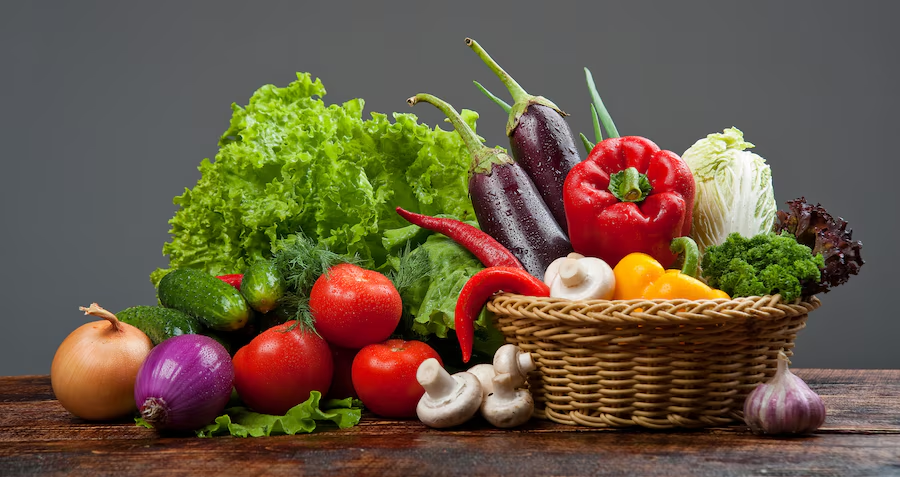
Eating vegetables isn’t just a culinary choice; it’s a gateway to a healthier life. Packed with essential nutrients and antioxidants, vegetables play a pivotal role in promoting overall well-being. From boosting immunity to reducing the risk of chronic diseases, their benefits are as diverse as they are health benefits of vegetables.
Nutrient Powerhouses
Vegetables are nutrient powerhouses, offering a rich array of vitamins, minerals, and phytochemicals vital for optimal health. Leafy greens like spinach and kale are abundant in vitamins A, C, and K, essential for vision, immune function, and bone health. Meanwhile, colorful vegetables such as bell peppers and carrots provide a spectrum of antioxidants like beta-carotene, protecting cells from damage and supporting skin health.
Enhancing Immunity
A robust immune system is key to warding off illnesses, and vegetables play a pivotal role in strengthening it. Garlic, for instance, contains allicin, a compound known for its antimicrobial properties. Broccoli and Brussels sprouts are rich in vitamin C, which supports immune cell function. Regular consumption of immune-boosting vegetables ensures the body is well-equipped to fight infections and maintain vitality.
Heart Health Champions
Vegetables are heart health champions, contributing to lower blood pressure and reduced risk of cardiovascular disease. Potassium-rich vegetables like sweet potatoes and spinach help regulate blood pressure, while fiber-packed vegetables such as beans and peas lower cholesterol levels. Additionally, the presence of antioxidants in vegetables like tomatoes and avocados supports heart health by reducing inflammation and oxidative stress.
Weight Management Allies
Incorporating vegetables into your diet can aid in weight management due to their low calorie and high fiber content. Fiber-rich vegetables such as broccoli and Brussels sprouts promote satiety, reducing overall calorie intake. Moreover, vegetables like cucumbers and celery are mostly water, contributing to hydration and a feeling of fullness without excessive calories. By filling up on nutrient-dense vegetables, individuals can maintain a healthy weight more effectively.
Digestive Health Support
One of the health benefits of vegetables is digestion. providing fiber and promoting gut function. Fiber-rich vegetables like artichokes and peas aid in regular bowel movements and prevent constipation. Moreover, vegetables like cabbage and kimchi contain probiotics that foster a healthy gut microbiome, enhancing digestion and nutrient absorption. Including a variety of vegetables in your diet ensures a balanced gut environment conducive to overall wellness.
Skin Radiance Boosters
Achieving radiant skin starts from within, and vegetables contribute significantly to skin health and appearance. Bell peppers and carrots, rich in beta-carotene and vitamin C, promote collagen production, maintaining skin elasticity and reducing signs of aging. Leafy greens like spinach and Swiss chard are packed with antioxidants that combat oxidative stress and support skin cell renewal, ensuring a vibrant complexion.
Mental Well-being Enhancers
Vegetables also play a role in enhancing mental well-being, thanks to their nutrient profile. Magnesium-rich vegetables such as spinach and kale support neurotransmitter function, aiding in mood regulation and stress management. Additionally, folate-rich vegetables like asparagus and broccoli contribute to brain health by supporting cognitive function and reducing the risk of depression.
Conclusion
Incorporating vegetables into your daily diet isn’t just about flavor; it’s about nourishing your body and mind. From boosting immunity and supporting heart health to enhancing skin radiance and mental well-being, the health benefits of vegetables are undeniable. By making vegetables a cornerstone of your meals, you empower yourself with essential nutrients that promote vitality and longevity. Embrace the diverse array of vegetables available and reap the rewards of a healthier, happier you.
